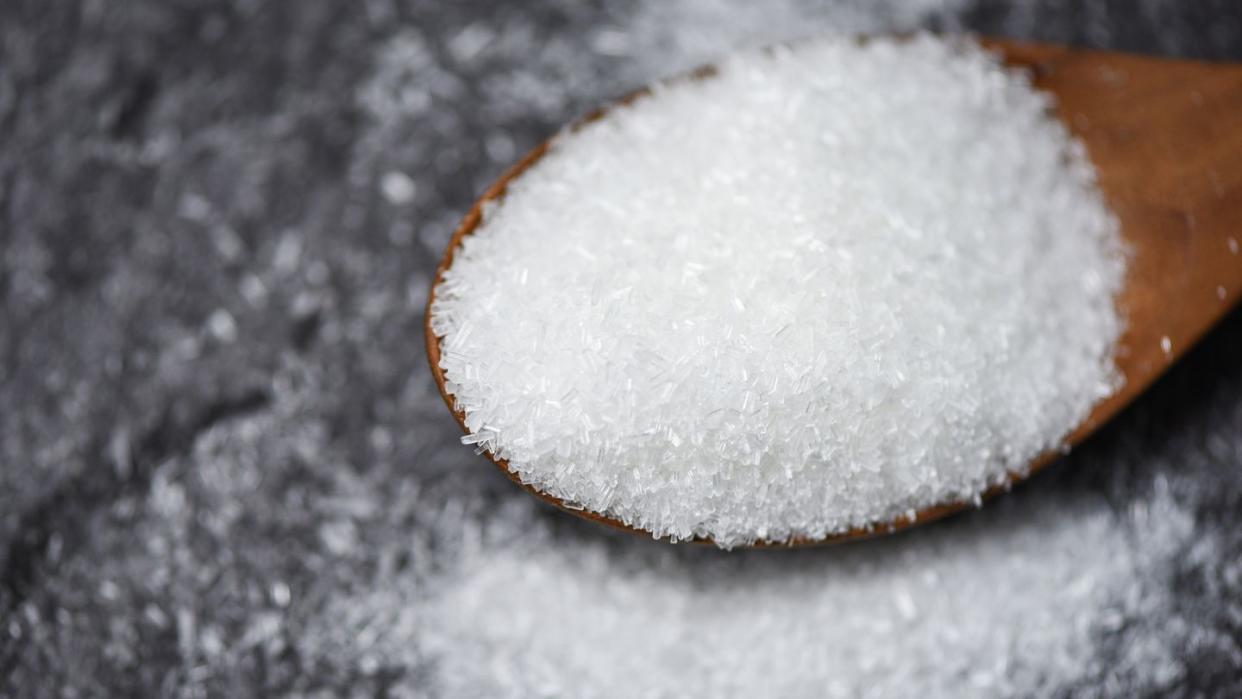Hey America, It's Time To Stop Demonizing MSG

Ingredients are constantly shifting in and out of favor. Eggs were once maligned for being cholesterol bombs, and before becoming a symbol of luxury, lobster were long considered to be a poor man’s food. And even now, some health activists are currently targeting seed oils, which have been used by humans for millennia.
But there's one ingredient that still struggles to shake off its bad reputation: MSG. Short for monosodium glutamate, the white granules have been blamed for a bevy of health issues— headaches, fatigue, heart palpitations, the list goes on. Restaurants and packaged food brands have publicly denounced the ingredient for decades.
However, there’s one small problem with these claims: they’re not true. Long before MSG was considered an “unhealthy” ingredient, it was found in food products across the United States. Major brands like Campbell’s and Heinz used it to flavor canned soups, frozen meals, and even baby food. Government contractors added the seasoning to MREs so rations would taste better on the front lines.
The brand Ajinomoto makes the world’s first MSG seasoning, and they have long faced an upward battle with American consumers. Beyond simply convincing shoppers to buy their products, they’ve also needed to dispel decades of disinformation.
Why Are People Scared Of MSG?
A 1968 letter to the editor in The New England Journal of Medicine first suggested the correlation between MSG and health issues. The author noted a series of symptoms after eating at a Chinese-American restaurant, and suggested MSG to be one of the potential culprits.
“That letter came out in 1968, which is right around the time of the Vietnam War,” says Dr. Tia M. Rains, Vice President of Science, Innovation & Corporate Affairs at Ajinomoto Health & Nutrition, North America. “There was this uptick in anti-Asian sentiment within the country, and Chinese restaurants in particular were bearing the brunt of it.”
That very letter inspired a pseudo-disease called “Chinese Restaurant Syndrome.” Subsequent studies involved injecting large doses of MSG into the brains of lab rodents and not using placebo controls. These questionable methods and their conclusions have long been debunked by the World Health Organization and the FDA, but the link between MSG and various symptoms was still cemented.
“As soon as you've got this negative connection, it takes so many years and so many scientific studies to kind of prove what the truth is,” Dr. Rains says.
How Have Opinions Changed?
It wasn’t until Ajinomoto called for Merriam-Webster to change their definition of Chinese Restaurant Syndrome that mainstream perceptions of MSG began to shift. The dictionary not only falsely described the term as a conclusive, scientifically verified disease; it also upheld decades of harmful racial stereotypes.
Since Ajinomoto’s 2020 campaign, Merriam-Webster has adjusted the definition and included a note that there is no clear link between MSG and adverse reactions. But they haven’t stopped there. Ajinomoto has launched multiple campaigns focused specifically about debunking myths about MSG.
Later in 2020, Ajinomoto launched a campaign to phase out the “No MSG” symbol plastered on restaurant displays and product packaging. Last year, they challenged and successfully convinced Goop founder Gwyneth Paltrow to stop spreading disinformation about the ingredient. And their newest initiative aims to teach Americans that the long-maligned seasoning is naturally found in some of our favorite foods.
The brand recently launched a satirical campaign this summer to “cancel pizza.” Complete with conspiracies and a web of red yarn, the campaign explains that common slice shop ingredients like tomatoes, mushrooms, and Parmesan all have naturally high levels of glutamates.
“It's the same chemical structure, whether the glutamate is coming from a bottle of MSG, or naturally in plants and animals,” says Dr. Rains. “In fact, it's the most prevalent amino acid in nature.”
Thanks in part to Ajinomoto's educational efforts, MSG is coming back in style. The Whole30 diet dropped MSG from their list of banned ingredients. The public response to the Cancel Pizza campaign was overwhelmingly supportive of the seasoning.
"I think people were a little bit nervous to kind of change their minds and embrace something that they thought they were supposed to not like," says Dr. Rains. "We're finally, I think, at that point where there's enough people that feel positive towards MSG, that it's helping these other people that may be on the fence kind of get to that other side."
You Might Also Like

